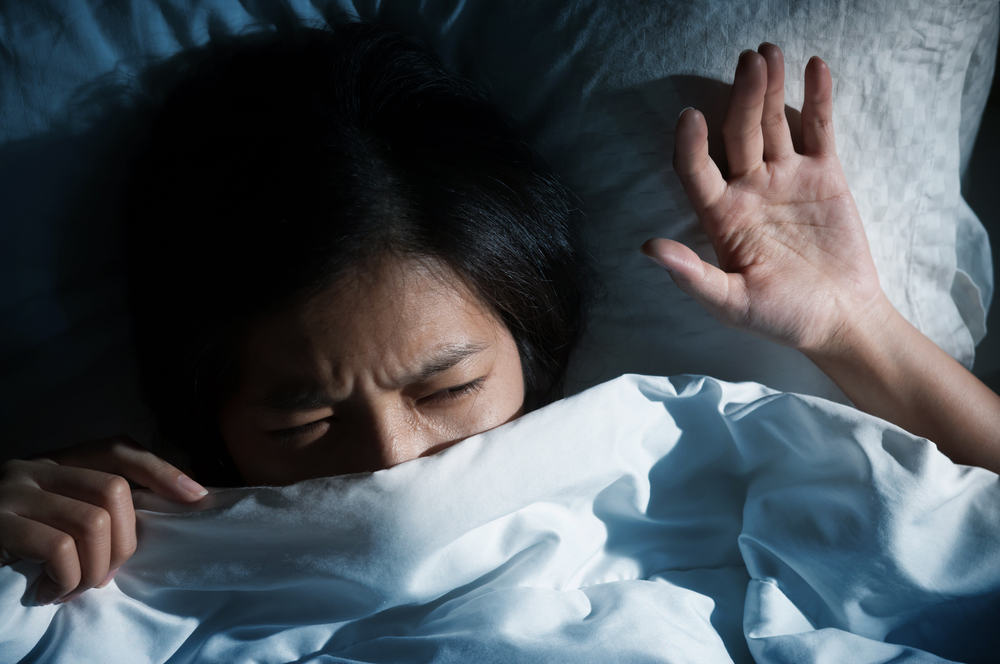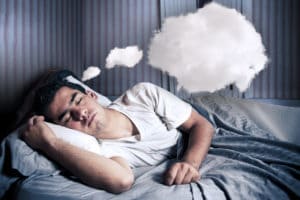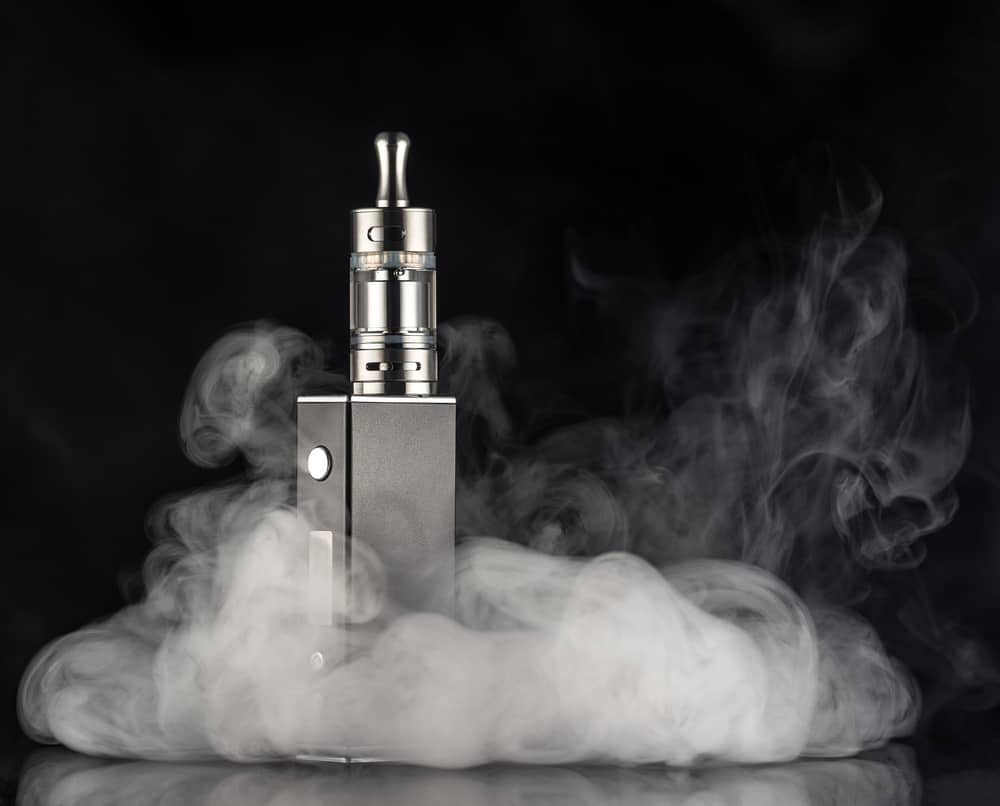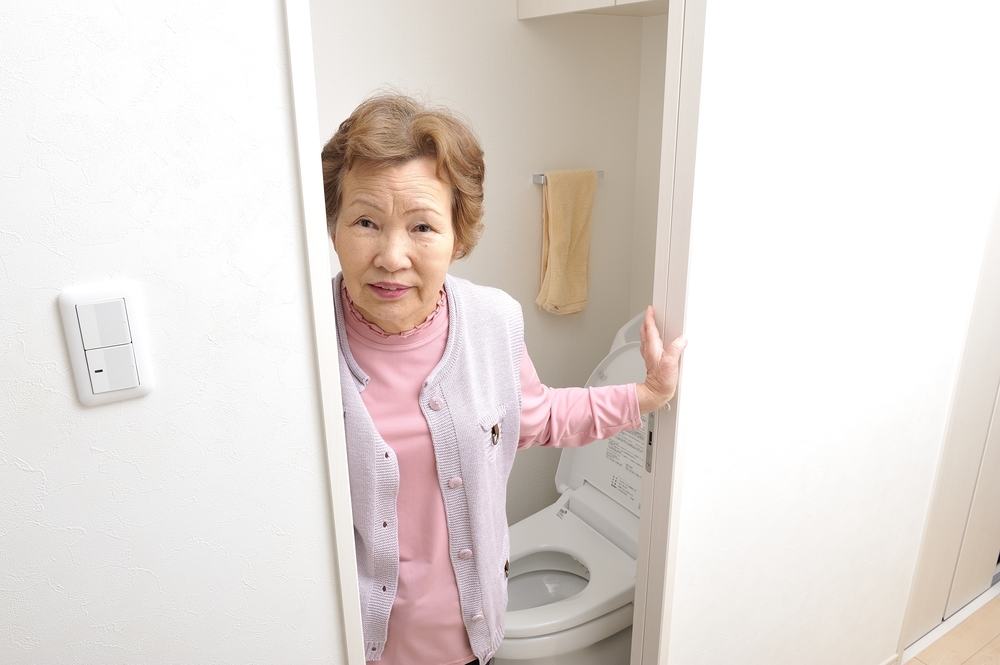Contents:
Medical Video: What Causes Nightmares?
Not only small children who often have nightmares, but also adults. Nearly 85 percent of adults still experience nightmares during sleep. Thirty percent of them are approached by nightmares once a month until they wake up from sleep, and another 2-6 percent experience nightmares once a week.
Nightmares in adults are generally spontaneous. Some adults experience spooky dreams after eating late at night or eating spicy foods, which can improve brain work. Sleep deprivation causes nightmares. Fear after watching a horror movie can also cause you to dream scary.
But you should be vigilant if your nights are always decorated by nightmares. Frequent nightmares in adults can be a sign of the beginning of some of the more serious health conditions.
What causes adults to often have nightmares?
1. Narcolepsy
Narcolepsy is a chronic sleep disorder. Narcolepsy occurs due to neurological abnormalities of the brain, causing a person to suddenly fall asleep at a time and place that may not be suitable for sleep.
People with narcolepsy can also experience hallucinations such as dreams and paralysis when they fall asleep or wake up, and interfere with sleep at night and invite real nightmares. People with narcolepsy may have nightmares that seem more real than others because their awareness is always at the threshold between getting up and sleeping, so the area of the brain responsible for dreams works more actively during their sleep than in people who sleep normally.
2. Depression
Depression can depart from trauma or as a side effect of other serious diseases. Depression adversely affects mood, feelings, stamina, appetite, sleep patterns, and concentration levels of sufferers.
Depressed people will usually feel lost or motivated, constantly feeling sad and hopeless. Dreaming is basically a thought process; continuation of what we think during our day of activities.
Depression can trigger nightmares when we are still thinking about these troublesome problems while in the REM (Rapid Eye Movement) sleep stage and trying to fix them. This shows that our life experiences, both past and present, not only have an influence on our lives but also in our dreams.
3. Sleep apnea
Sleep apnea often causes sleep sufferers to be disturbed. The airway with sleep apnea can be partially or completely blocked so you don't get enough fresh oxygen to the brain during sleep.
The brain interprets the lack of oxygen as a real threat - you can choke or choke to run out of air, and if your body doesn't react you will die. As part of the body's response to apnea, your heart will beat faster and your breath will gasp, which makes you wake up panicking in fear.
On the other hand, frequent awakenings in the middle of sleep (due to snoring or shortness of breath choking reflexes) can improve memory that affects the contents of dreams, thus triggering nightmares.
4. Post Traumatic Stress Disorder (PTSD)
Post-traumatic stress disorder (PTSD) is a serious anxiety disorder that occurs after a person experiences or witnesses a severe traumatic event, such as domestic violence to war.
Unresolved conflicts don't just disappear from the mind. Memories of bad experiences will be hidden in the mind and shape our personality. Trauma of the past can be so imprinting that it causes you to constantly feel worried and insecure even in safe situations, or continue to seek self-justification.
We often try to ignore the difficult problems that bother us during the day. But when we sleep and are forced to 'be alone' inside our own heads, the brain will discuss this difficult problem and interpret it as a nightmare.
Reporting from Medical Daily, A team of researchers from the University of Turku in Finland found that nightmares can increase the risk of suicide among the general population and veterans of World War II.
5. Ignore alcohol or drugs
Routine drinking alcohol or abusing drugs in large quantities can damage brain function. And the effect of doing it before going to bed can make you jump straight into REM (dreamland) sleep without further ado.
Once the effects of alcohol or drugs run out in the middle of sleep, the brain becomes confused and tries desperately to re-sequence the correct sleep cycle. That is, brain activity during sleep changes suddenly and irregularly, which makes it difficult for you to sleep well. This brain activity disorder can continue to occur even when you have stopped taking alcohol or drugs for weeks.
6. Nightmare syndrome
If there are no other causes that can be determined, often a nightmare may be a symptom of a different sleep disorder. Nightmare syndrome, also known as 'dream anxiety disorder', is a sleep disorder (parasomnia) that is characterized by frequent nightmares without apparent cause in adults. Either treatment or physical or mental disorders do not adequately explain why you can have nightmares.














